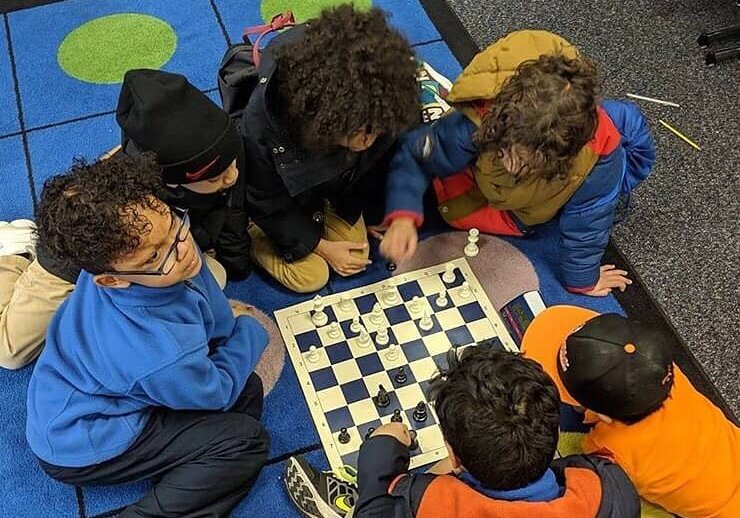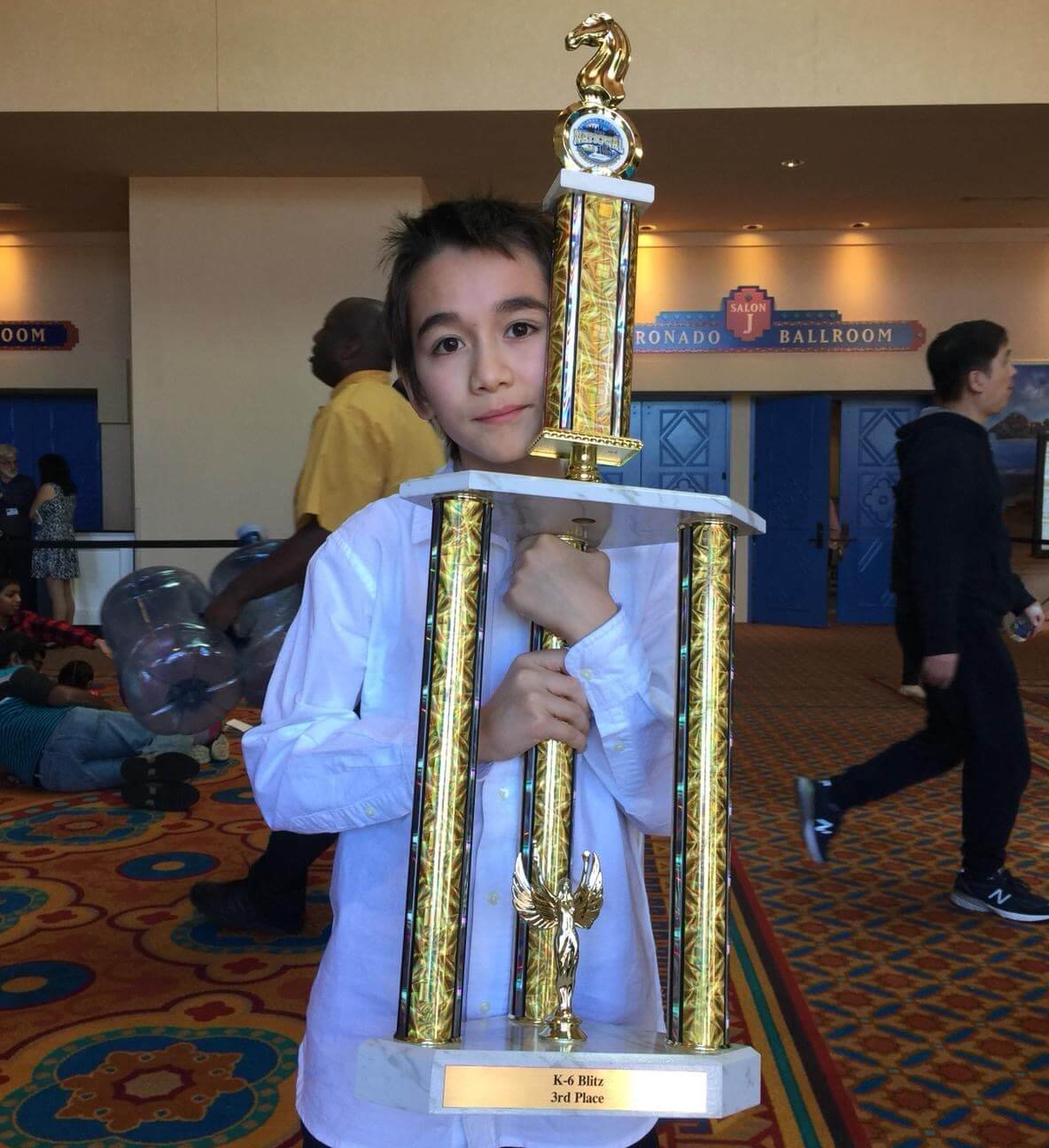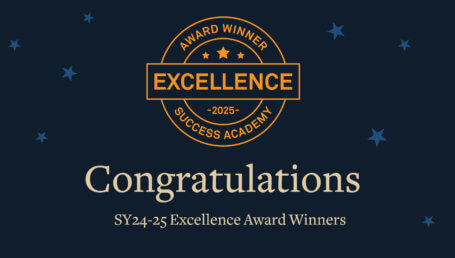
Christopher Johnson became obsessed with chess at the age of six, when he discovered a world of infinite possibilities contained within an 8×8 grid. As a teenager, he fell in love with teaching chess during a stint working for an after-school program. Now he’s one of Success Academy’s veteran chess teachers and content leads, entering his ninth year of teaching our scholars; it’s his fourth year at SA Hudson Yards MS. The game — along with the lessons it can instill in young people — continues to be a source of joy.
Chess has been an integral part of SA’s curriculum from day one, both as a regular part of the K-4 day and as an after-school option. Learning and playing chess sharpens scholars’ analytical instincts and teaches them to think strategically, control their impulses, and compete with confidence. The learning opportunities inherent in the game, plus the pure fun of mastering the board, is why SA employs a team of dedicated chess teachers and has developed a curriculum that encompasses everything from how the pieces move to the most advanced strategies.
Over the years, Mr. Johnson has helped his scholars discover the imaginative elements of the game, watching them fall in love with the out-of-the-box thinking that makes a good chess player. “Everyone knows those first eight to 10 moves, but you have to go beyond that to gain an advantage,” he explains. “One of the astonishing chess facts is that within the first two moves, there are 400 different possibilities. In the first 10 moves, there’s billions of different possibilities — astronomical — and they say there are more chess positions than there are atoms in the universe.”

The optimism inherent in a game of infinite possibilities keeps kids motivated to continually challenge themselves and learn from their mistakes. Each game is a chance to start anew and see where your critical thinking will take you. Each opponent will challenge you to consider the path to victory in new ways. The nimbleness of mind and the less obvious organizational and social-emotional skills are what Mr. Johnson finds most rewarding to watch his scholars develop.
“Many of the scholars who start out on my chess team aren’t very confident speakers or confident people in general. Chess gives them something to latch onto and become good at — they start playing against their parents and winning. They start to teach their peers their favorite moves — it really boosts that confidence,” Mr. Johnson says.

At the same time, chess is a game that welcomes different kinds of personalities and teaches scholars how to connect with others who don’t necessarily think like they do. “Depending on the type of person you are, you can find yourself in a position where there are five different good moves. You might choose the boldest of the five, or the most reliable, or the most creative. I can go to any country, play a chess game, and see who you are as a person — whether you are an aggressive player, more laid-back, or a combination. Chess really allows you to get to know someone without even needing to speak the same language.”
This August, Mr. Johnson watched one of his top chess students, Nathaniel Mullodzhanov, win the National Open Championships with a perfect 7-0 score. It was the first major national scholastic event to be held virtually, but neither Mr. Johnson nor Nathaniel were phased. Chess, as Mr. Johnson explains, is adaptable — and it teaches kids to be, too.
For Nathaniel, the win was just as exciting online as in person because the ultimate satisfaction of playing a successful chess game remains, regardless. Upon winning, Nathaniel reflected on the key lesson he learned from Mr. Johnson: “When you play chess, every decision you make at the board is your own. Playing chess, you learn to take responsibility for your actions.”

Nathaniel with a trophy almost as tall as he is!
In the national championship, Success Academy scholars competed against over 2,000 scholastic chess players from across the country. Scholars often train online — there’s a wealth of resources that make chess and chess tournaments accessible regardless of location. For Mr. Johnson and his scholars, chess is about strategic planning, goal setting, and achievement, whether remote or in person: “Chess is just like life. No matter what path you take, whether that’s becoming a doctor, lawyer, or teacher, you need to have goals and steps to make those goals happen. That’s what chess is giving our scholars; the skills to make their dreams happen.”










